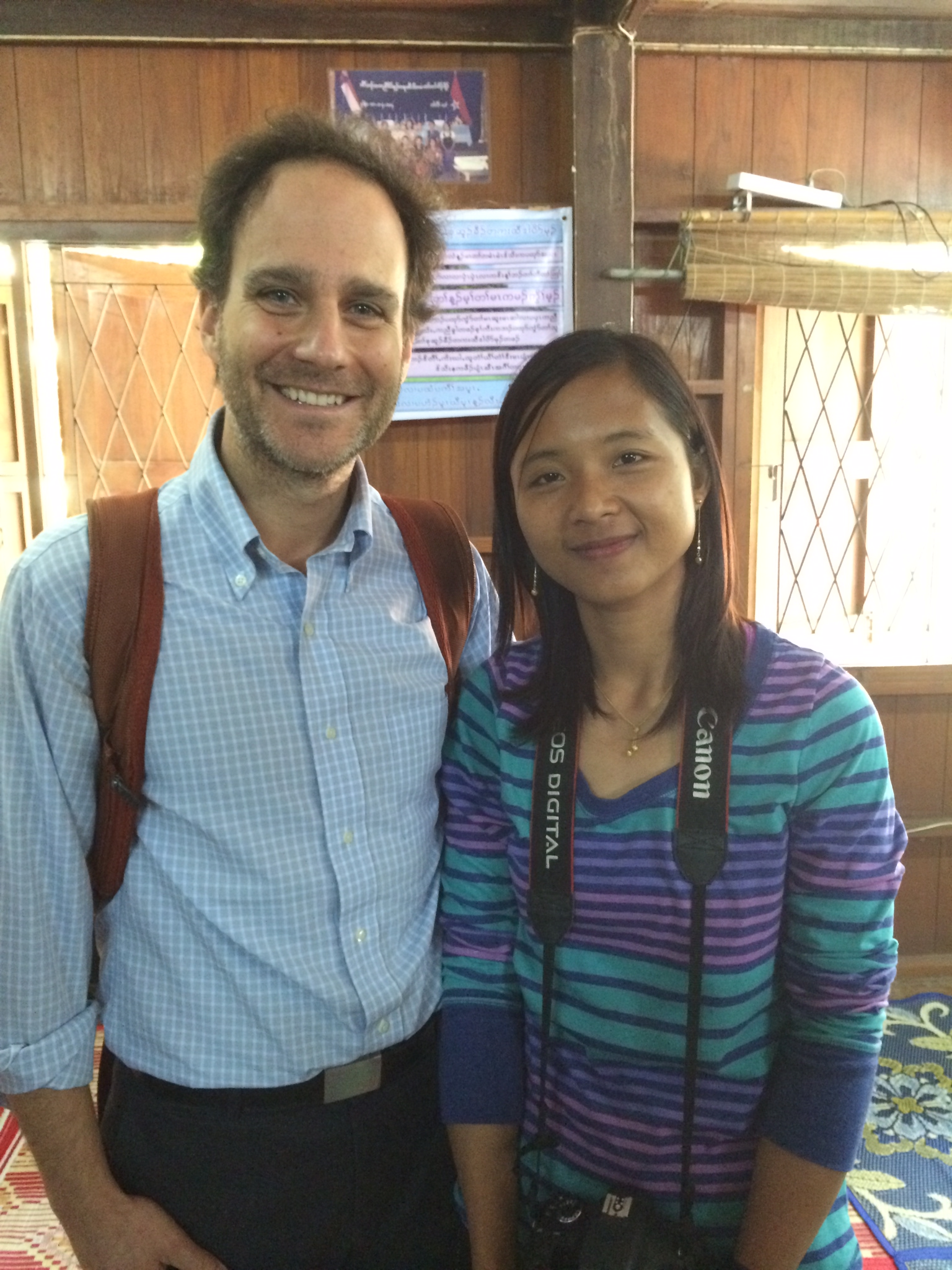
Many people wonder why Tishah B'Av continues to matter in modernity. This solemn day of fasting commemorates the destruction of the Temple in Jerusalem and exile from the land of Israel. Why continue to mourn these losses in an age when the Jewish people have regained our homeland and rebuilt Jerusalem? After traveling with American Jewish World Service to the Thai-Burmese border this past winter, however, I have rediscovered in Tisha B’Av an eternal call to remember oppression and to act to overcome it.
During my travels with AJWS I had the privilege of meeting with some of the most inspiring refugee leaders on the planet. Let me tell you about Hser Hser. She was born in Karen State, Burma, an area of the country that has been militarily contested for more than 60 years and where the government provides few to no social services. The Karen people are an oppressed ethnic minority who live under enormous economic strain and have faced violence at the hands of the Burmese military, forcing them to flee their homes and become a people dislocated from their land. Hser Hser is one of the tens of thousands of Karen people who fled Karen State to escape persecution. Now, after attending high school in a refugee camp on the border with Thailand, she is a leader of KWO, the Karen Women's Organization. The heroic leaders of this organization work to empower girls and women to build their political power in order to strengthen the Karen people and to assert their rights to live lives free of violence and abuse.
Hser Hser invited the 20 or so Jewish graduate students of the delegation I was leading to a dinner with twenty or so Karen women, because they wanted to learn from us, as Jews, about how we preserved our history, memory and culture despite dispersion and exile. In turn, we were eager to learn from them; their stories of modern day exile could help us to imagine what our ancestors experienced after they were exiled from the Land of Israel. And while we recognized the similarity of these histories, we wanted to learn the particular contours of the Karen people’s own narrative.
I was honored to close this exchange by emphasizing our peoples’ parallel experiences: “We feel very connected to the Karen people, because you also have known exile and dispersion from your land, and are struggling to maintain Karen culture and peoplehood despite that. You lack recognition from your government: but we recognize you!” They cheered and applauded. As we cheered along with them, we felt the link between recognition and the possibility of redemption.
We ended by singing Hatikva, Israel's national anthem, which we explained meant "the hope." They were deeply moved that Jews never lost hope. In return, they sang the Karen anthem for us. One of the Karen leaders concluded by saying, "We feel that we are the Israelites trying to be free from Egypt today."
And so this Tishah B'Av, in tribute to the struggles of the Karen women to be recognized and to return from exile, I will remember and I will act. I will remember the destruction of the Temple, the exile from the Promised Land, and I will remember my ancestors who sat on the shores on the Babylon River and wept, and wept... and who never lost hope. And I will remember Hser Hser and the hundreds of thousands of people like her who are in exile from their homes because they are persecuted ethnic minorities and who suffer violence and disempowerment because they are women. And I will weep a little, sharing the pain of their loss and dislocation.
But I will mostly smile and have hope. I will remember the courageous faith of the Karen women.
And I will act. I will observe Tishah B'Av by telling the story of the Karen women.
And I will act by demanding that our government do what it can to amplify the voices of these courageous women by passing the International Violence Against Women Act (IVAWA). This act would ensure that the U.S. government recognizes the struggles and supports the needs of women like Hser Hser. As we know from our own story, being recognized is the first step toward redemption.
A rabbinic legend tells the story of a group of rabbis ascending Jerusalem, toward the ruins of the ancient Temple. Upon seeing a fox walking on the sacred ground amidst the ruins, the rabbis cry out and weep. Yet the wise Rabbi Akiva laughs. “How can you laugh?” they ask. Patiently, Akiva relays the predictions of two prophets, Uriya the Kohen, and Zekharya ben Yeverekheyahu. The first, who lived during the period of the original Temple, prophesied that Zion (Jerusalem) would be plowed as a field; yet the second, who lived later during a time that Jerusalem had been rebuilt, prophesied that there would again be elders who walked in the streets of Jerusalem. Akiva reassured his colleagues that the fact that the first prophecy of destruction was fulfilled gave him hope that the second prophecy of return would come true as well.
So it is with us today. We bear witness for people around the world who suffer destruction and exile, knowing that return, recognition, and redemption are possible. But we don't stop with remembrance. We must act!
Related Posts

Harnessing the Power of our Mothers Around the Seder Table

Melding Tradition and Innovation: Our Interfaith Toddler Naming Ceremony


